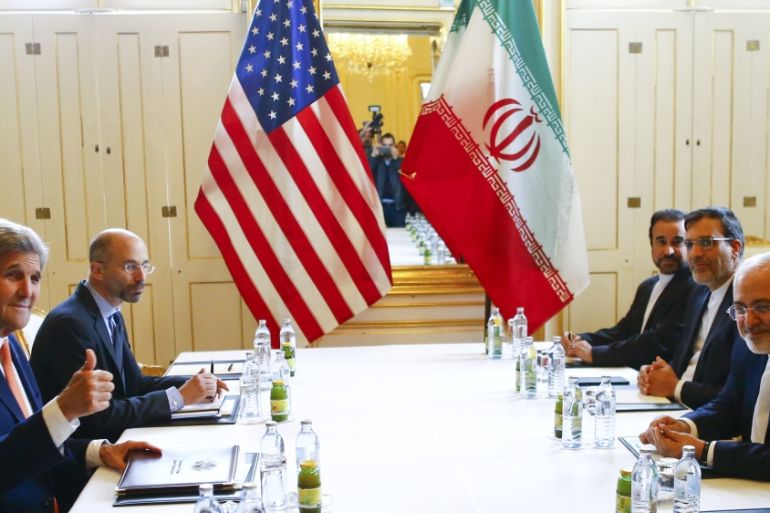Washington sought ‘leverage’ with $400m Iran payment
The cash payment to Iran was used as bargaining chip in release of five US prisoners, according to the State Department.

The United States has acknowledged that it waited for Iran to release American prisoners before delivering $400m in cash that it owed the country, but again insisted the payment was not a ransom.
“With concerns that Iran may renege on the prisoner release … we of course sought to retain maximum leverage until after American citizens were released,” US State Department spokesman John Kirby told a news conference. “That was our top priority.”
In January, five American prisoners were released as Washington granted clemency to seven Iranians and withdrew arrest warrants for 14 others.
Immediately after that, the US airlifted $400m worth of Swiss francs and euros to Iran.
READ MORE: A secret school for Afghans in Iran
The payment was made by the US in cash due to international sanctions against Iran.
The money was delivered on January 17, just one day after a landmark nuclear deal between Tehran and world powers took effect.
“We were able to conclude multiple strands of diplomacy within a 24-hour period, including implementation of the nuclear deal, the prisoner talks and a settlement of an outstanding Hague tribunal claim,” Kirby said.
“It’s already publicly known that we returned to Iran its $400m in that same time period as part of the Hague settlement agreement.”
|
|
In early August, the State Department had said the prisoner release and delivery of money were completely separate, although Kirby acknowledged on Thursday that the two were related.
“I’m saying that the events came together simultaneously … it would have been foolish, imprudent, irresponsible for us not to try to maintain maximum leverage,” Kirby said.
Three of the five prisoners, including Jason Rezaian, the Washington Post’s Tehran bureau chief; Saeed Abedini, a pastor from Idaho, and Amir Hekmati, a former US Marine from Flint, Michigan, as well as some family members, were part of a prisoner exchange that followed the lifting of most international sanctions against Iran following a nuclear deal in 2015.
One more prisoner, Nosratollah Khosravi-Roodsari, chose to remain in Iran, while a fifth, student Matthew Trevithick, was released separately.
‘He lied about the hostages’
The ordeal has set off a tidal wave of condemnation from opposition Republican party politicans, who have questioned the timing of the two events and said the government paid a ransom for the releases.
The $400m, frozen since 1981, plus $1.3bn in interest owed to Iran, was part of a settlement of a long-standing Iranian claim at the Iran-US Claims Tribunal in The Hague.
The funds were part of a trust fund Iran used before its 1979 Islamic Revolution to buy US military equipment that was tied up for decades in litigation at the tribunal.
The Obama administration has maintained that negotiations over the funds and the prisoners were conducted on separate tracks and were in no way linked.
READ MORE: Iran destroys 100,000 ‘depraving’ satellite dishes
Republican presidential candidate Donald Trump’s campaign was quick to attack.
“Speaking of lies, we now know from the State Department announcement that President Obama lied about the $400m in cash that was flown to Iran,” Trump told a rally in Thursday in North Carolina.
“He denied it was for the hostages, but it was. He said we don’t pay ransom, but he did. He lied about the hostages – openly and blatantly.”
Trump’s opponent in the race for the White House, Hillary Clinton, the former secretary of state, was no longer serving as the nation’s top diplomat when the accord came into effect.
Still, Trump’s senior communications adviser Jason Miller said that “by helping put together a deal that ultimately sent $400m to Iran that was likely used to fund terrorism, Clinton has proven herself unfit to be president of the United States”.